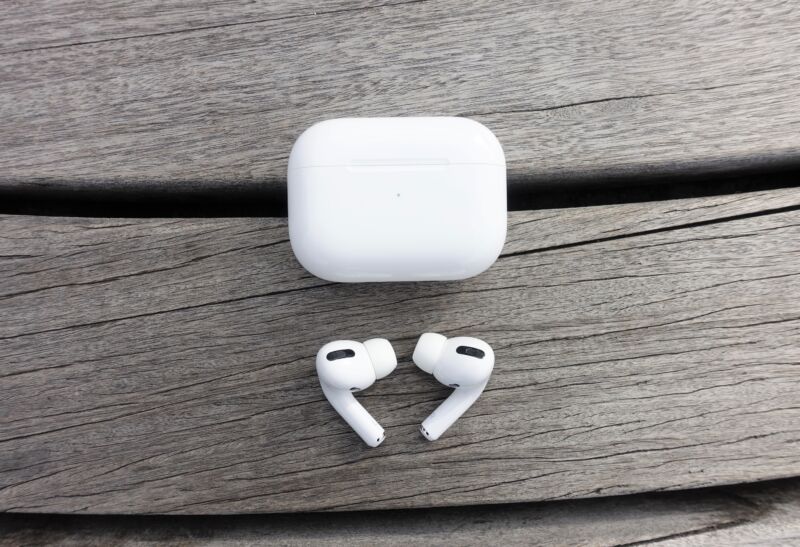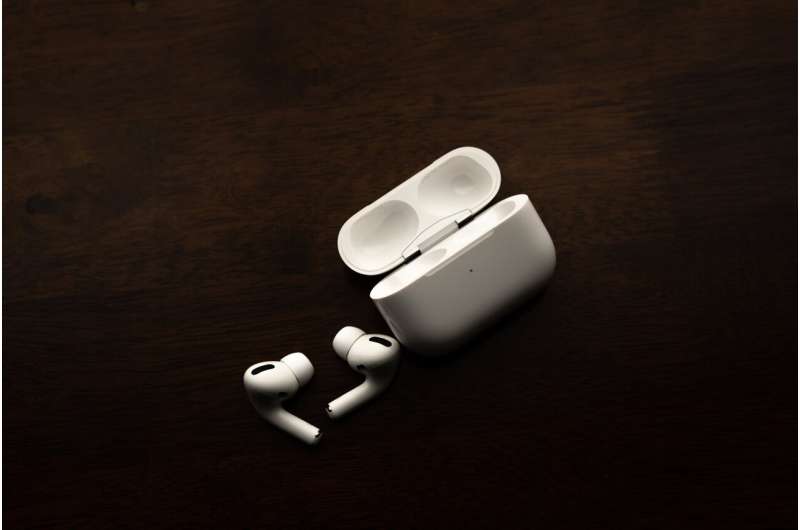
A study in the journal iScience suggests that, in some noise situations, AirPods, particularly the Pro model, can work just as well as far pricier prescription-only models.
AirPods are not sold or approved by the Food and Drug Administration as devices for those with mild to moderate hearing loss. But with cheaper, over-the-counter hearing aids now available at common retailers, there's a renewed interest in non-medical companies moving into the space to help people who don't need expert care—including from Apple itself.
Researchers from the Taipei Veterans General Hospital, Taiwan's National Yang Ming Chiao Tung University, and other entities conducted what they believe is the first comparison of smartphone-oriented earphones with medically prescribed hearing aids. The study had a very small sample size of 21 people between 26 and 60 years old and was conducted in a lab setting with a single source of sound. Still, the results are intriguing, especially considering how many people already have access to iPhones, AirPods, and their audio-enhancing features.
The researchers tested AirPods with their Live Listen feature activated against five standards for a personal sound amplification product (PSAP) under ANSI CTA 2051-2017:
- Frequency response smoothness
- Frequency response bandwidth (range)
- Maximum output sound pressure level (OSPL) at 90 decibels input
- Total harmonic distortion (THD)
- Equivalent input (or internal) noise level (EIN)
AirPods 2 only met two of the standards, bandwidth and THD, while AirPods Pro met all of them except EIN, registering 37 decibel sound pressure levels (dB SPL), when the standard calls for 32 or less. A study co-author told The Wall Street Journal that passing the EIN threshold could make it harder for people to distinguish softer sounds and speech.
The AirPods were tested against a $1,500 Bernafon MD1 and a $10,000 OTICON Opn 1. In quiet settings, AirPods Pro helped people hear as well as the Bernafon and nearly as well as the OTICON. The AirPods 2 performed the worst but still helped people hear a human voice better than without using any device.
In a noisier environment, AirPods Pro's active noise cancellation brought their performance within range of the OTICON device, but only if the noises came from the sides (as you might expect for earbuds). Neither AirPod performed very well when noise came from the front while trying to listen elsewhere.
Not noted in the report are a couple of distinctions between AirPods and more typical hearing aids. One is battery life, as the Bluetooth-based AirPods use an iPhone connection to hear environmental sounds and prioritize size over longevity. Another is repairability, another low or non-existent priority for the AirPods line.
Apple has long welcomed hearing aids to pair with iPhones, giving them a range of features and controls in its Made for iPhone (MFi) program. It has also pushed the hearing assistance features of its own audio hardware with Live Listen and Conversation Boost (which, pertinent to the study, improves mic pickup from people in front of you). A Wall Street Journal report from 2021 suggested Apple was considering positioning AirPods as hearing devices, something that's more feasible with the recent over-the-counter change to hearing aid regulations.
Ars Technica may earn compensation for sales from links on this post through affiliate programs.



3175x175(CURRENT).thumb.jpg.b05acc060982b36f5891ba728e6d953c.jpg)

Recommended Comments
There are no comments to display.
Join the conversation
You can post now and register later. If you have an account, sign in now to post with your account.
Note: Your post will require moderator approval before it will be visible.